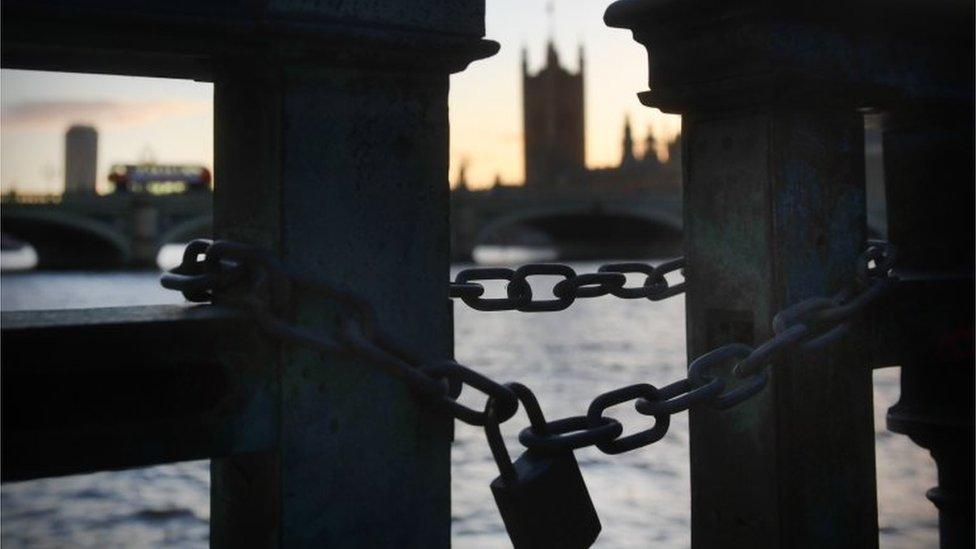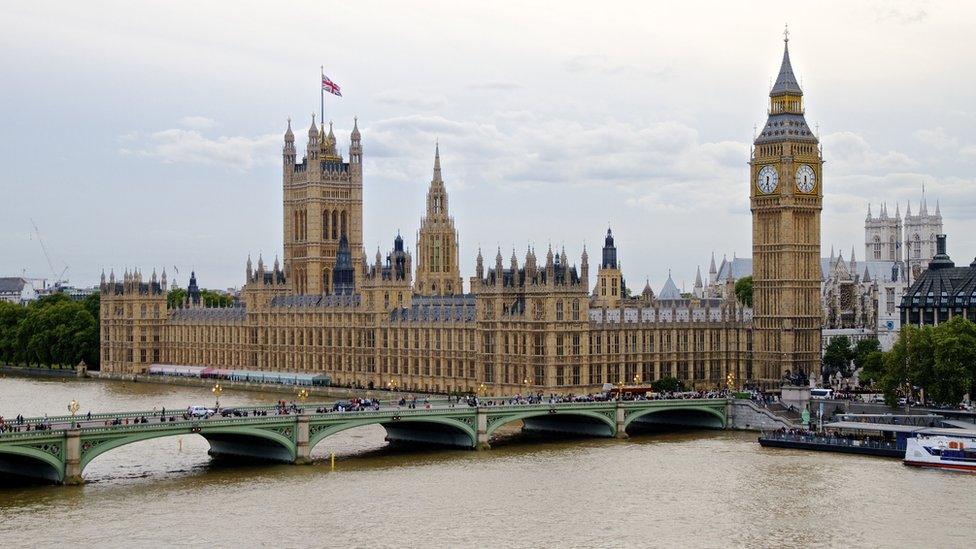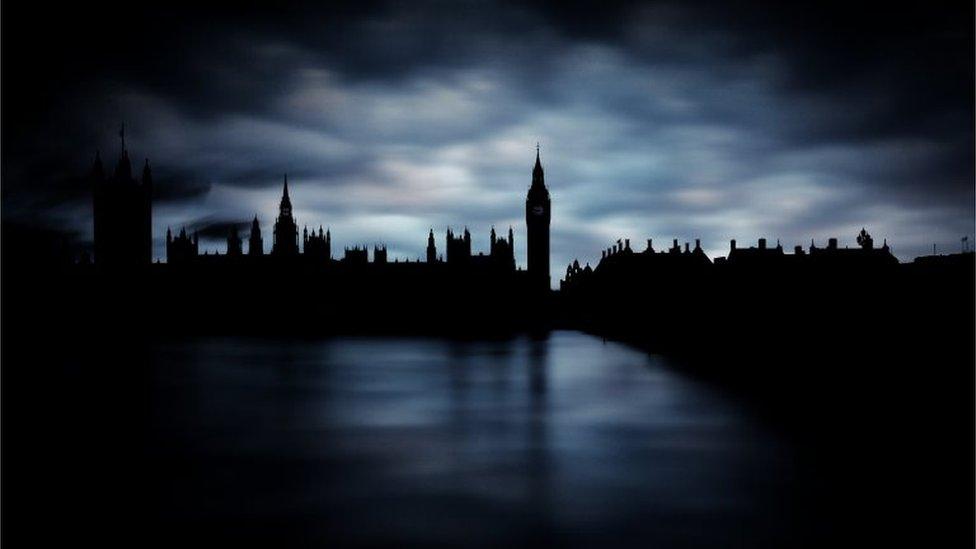Ban MPs accused of sexual offences from Parliament - unions
- Published

Parliamentary unions are reiterating calls for MPs being investigated for sexual misconduct to be automatically barred from the parliamentary estate.
In a letter to Commons Speaker Sir Lindsay Hoyle, the unions said current rules meant MPs were "immune from normal workplace standards".
At the moment, MPs can only be suspended if other members vote for it in the House of Commons.
Sir Lindsay has said security of staff was his "number one priority".
Responding to the unions' letter a House of Commons spokesman said: "Sexual harassment has no place in the House of Commons. We take the safety of our staff seriously."
He added that there was an Independent Sexual Misconduct Advisor which offered both staff and members of Parliament advice and support to those who "have experienced sexual misconduct/harassment while on the Parliamentary Estate, in constituency offices or while undertaking parliamentary work".
In the letter - signed by Prospect, the FDA, the GMB and Unite - the unions said that it was right to revisit the proposals, to exclude from the parliamentary estate, MPs who are being investigated for sexual misconduct or other serious misconduct that "might suggest a potential risk to staff".
Currently, MPs do not automatically face a parliamentary ban if they are being investigated, allowing them to access the estate and to meet staff and visitors and other MPs face to face.
The unions argued that "in any other employment context" an employer could suspend an employee "where there is a serious allegation of misconduct".
They added that parliamentary staff could be suspended if they face similar allegations.
"Maintaining a system where, purely by virtue of the power they wield as an elected representative, MPs are immune from normal workplace standards is at best anachronistic and at worse actively contributing to a toxic and unacceptable working culture," said Prospect deputy general secretary Garry Graham.
"It's time Parliament stopped crying 'constitution' and got it's house in order."
The unions said they were raising the subject following "a string of cases involving MPs" and the news that Wayne Couzens - who was found guilty of murder - had worked briefly on the parliamentary estate.
They said this would have "added to the anxieties and concern" of staff.
The unions acknowledged that responsibility for vetting officers in Parliament lay with the police but added that "the question as to who we allow to cross 'the parliamentary threshold' is key to ensuring the security" of staff.
Addressing concerns that suspending MPs could lead to constituents losing their representation, the unions argued that the pandemic had shown MPs could still contribute virtually and vote through using a proxy.
Related topics
- Published9 June 2021

- Published25 May 2021
